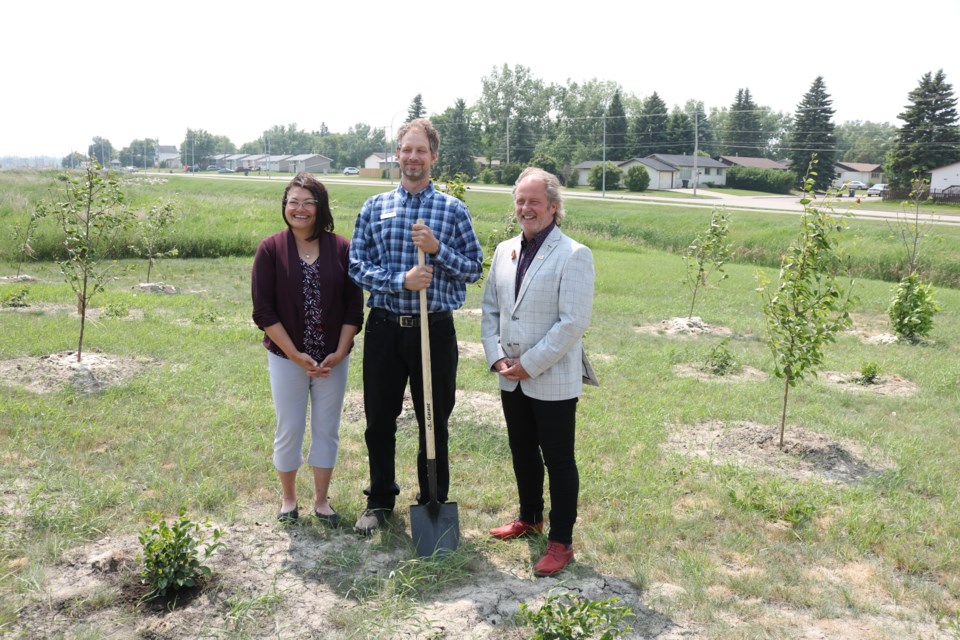YORKTON - Parkland College hosted a grand opening of their recently planted Campus Food Forest Wednesday.
The concept of ‘Food Forest’ – established at College Trades and Technology Centre in Yorkton -- is a step toward food security for college students and the community, offered Kami DePape, Vice President, Academics with the college.
“Food insecurity is a growing concern across Canada and around the world,” she said.
The trees in the small ‘forest’ is a way to help, with the fruit once the trees become productive being available for anyone to harvest.
“By planting trees and shrubs that produce fruit, nuts, seeds, berries, and pods, this will help reconnect people back to their local sources and build community,” noted a college release. “In the upcoming years, the produce grown will benefit anyone who chooses to take advantage of them, particularly food-insecure students attending programs at the college. This project will also engage the community by providing shade, habitat and make it visually more appealing and inviting for those that use the footpath near the campus.”
Yorkton Mayor Mitch Hippsley said the very process of planting a tree is “a significant gesture” which points to the future, adding he “commended the college for taking the initiative and making this happen.”
The Campus Food Forest initiative was made possible through the Tree Canada Eligible Grant program, and Northbridge Financial Corporation.
In addition the City of Yorkton supplied soil and mulch for the project, which has seen 30 fruit trees and shrubs planted including apple, pear and crab apple trees and sour cherry and haskap bushes.
Applied Research Coordinator Greg Tomcala said some of the trees may produce a limited amount of fruit this year, with full production likely achieved in three-to-five years.






